Meet the woman who’s turning Myanmar’s street children into chefs
Ma Khin started a restaurant to shelter and train street kids, and it has involved the occasional heartache but also fulfilment. She is one of CNA’s Champions for Change.

YANGON: When tour guide Ma Khin set up a restaurant to train homeless street children for careers as chefs and waiters, she found herself having to reckon with their colourful pasts.
“The children on the streets have psychological issues,” explained the 40-year-old.
“Sometimes we have children with criminal records. Sometimes we have thieves. One of the challenges we faced was to teach them not to touch the guests’ belongings. On the streets, they steal in order to fill their stomachs.”
On one occasion, a boy, within two weeks of his arrival, unlocked the door for his friends to enter. He stole some money from the restaurant and distributed it among them.
“We experienced these sorts of things. We thought of closing down a few times, but we carried on,” said Ma Khin, who pushed on with love and mothering because she knew what it was like to grow up poor.
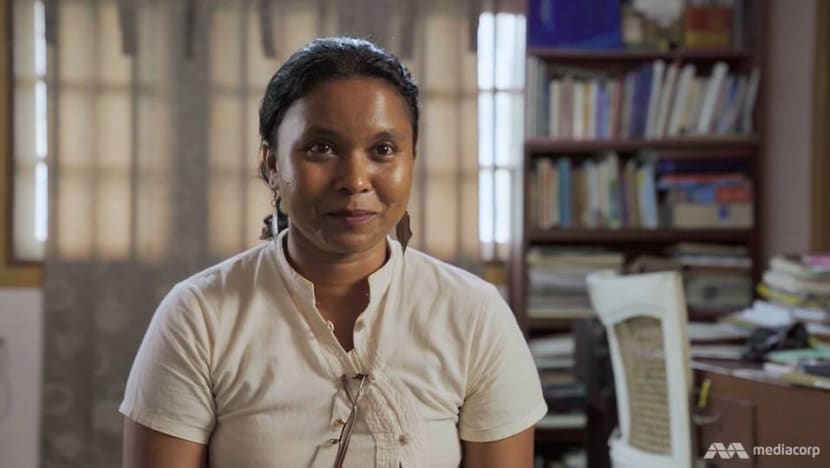
Her dedication to helping street children in Myanmar makes her one of Channel NewsAsia’s Champions for Change, a series marking the channel’s 20th anniversary this year by celebrating 20 individuals whose imagination, talents and efforts have uplifted communities across Asia.
They include a former architect who provides employment for adults with autism, training them to become jewellery artisans in Singapore, and an Indian social entrepreneur who collects excess food and redistributes it to starving people.
ESCAPING POVERTY THROUGH EDUCATION
For Ma Khin (Sister Khin), as she is affectionately known – her real name is Khin Hnit Thit Oo – she understood from young that to tackle poverty, education was crucial.
Her single mother had to juggle work and family, struggling as the sole breadwinner to put food on the table for the family of six.
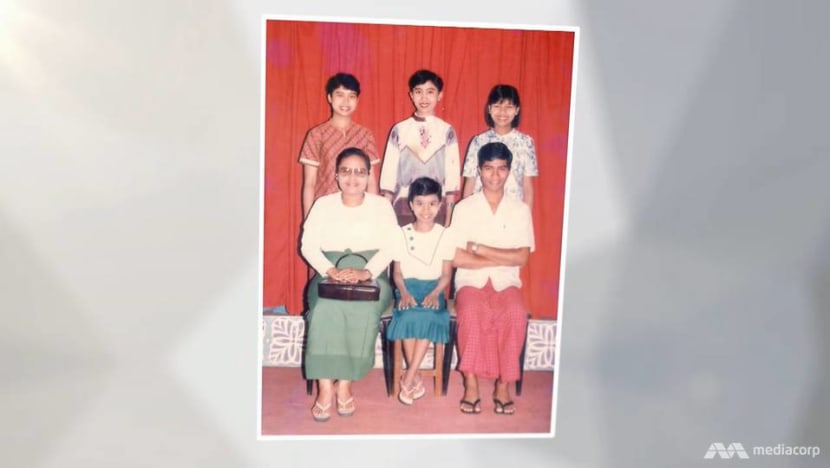
“It (the lack of money) was very obvious in our lunch boxes nearing the end of the month,” said Ma Khin, who managed to complete high school with help from her extended family.
While waiting to go to university in 1996, the self-driven lady attended English courses from 7am to 10am, gave tuition from noon to 3pm and also worked as a sales assistant in a pharmacy from 4.30pm to 9.30pm.
Before the term could begin, however, the authorities suspended classes because of student protests. So she found work as a hotel receptionist instead, which turned out to be a blessing.
While working, she studied French to cater for the growing number of French-speaking guests at the hotel. A frequent Japanese visitor she befriended was curious, however, to know why she was learning that language.
“I was always trying to prepare for my exams behind the counter and at the staircase. We talked, and I told him I wanted to go to France one day,” recalled Ma Khin, who thought nothing of their conversations.
Some time later, he tracked her down, told her he was awarding scholarships to youth in Myanmar and asked her if she was keen. She took up the offer and studied at a French university, with full funding.
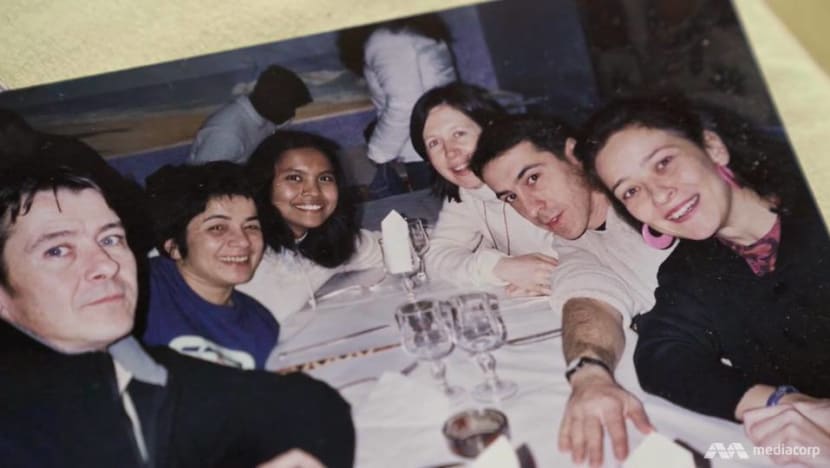
When she returned home, she started working as a tour guide and helping out at non-profit organisations, one of which sent her for a course in Cambodia in 2009.
“It was a one-week course, and I happened to dine in a restaurant. That restaurant employed children from the street and taught them cooking skills. I got my inspiration from there,” she said.
HELPING RUNAWAYS TO PAY IT FORWARD
Back home in Myanmar, children were often ending up on the streets, sometimes as victims of domestic abuse and/or sometimes poverty.
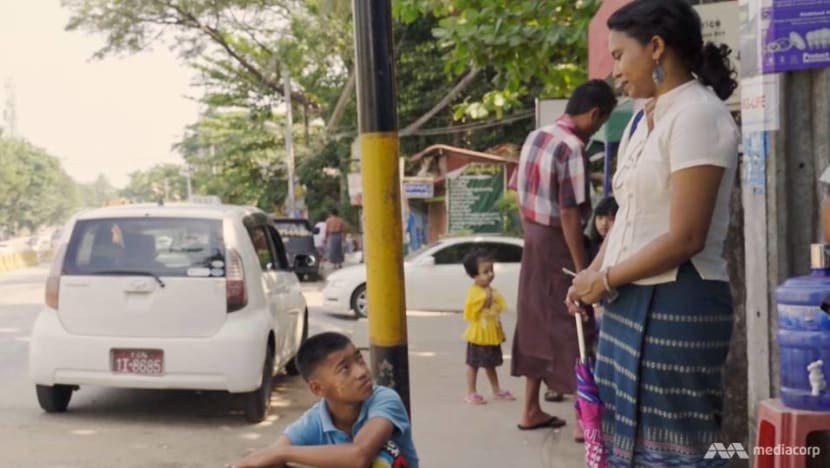
When some children reach the age of 10 or 11, their parents would push them into a job, leave them at work and take six months of wages in advance, said Ma Khin.
These parents, often uneducated, think this is normal because they grew up that way when they were young. “They don’t care how the child would feel,” she added.
The child may run away because he or she can’t take it any more. The child starts living on the streets.
One in five children aged 10 to 17 are working instead of attending school, according to a 2015 government report, but the real number is estimated to be higher.
READ: Uphill battle to curb child labour in Myanmar, where 13-year-olds work in construction
Minister of Labour, Immigration and Population U Thein Swe said last February that owing to widespread poverty and lack of education among the children, it is difficult to prevent the number of child workers from rising.
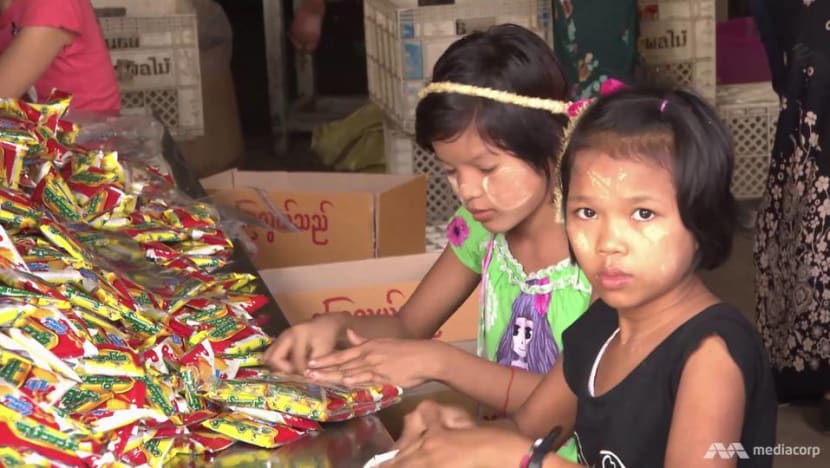
To provide long-term help for the children, Ma Khin and a friend proposed the idea of a training restaurant to the French Embassy, winning its Human Rights Prize of €15,000 (S$23,000).
That paved the way for LinkAge Vocational Training Restaurant to open in Yangon in 2011. It is managed by Forever, an NGO she and her friends had formed.
Located at a shophouse, the restaurant now trains youths aged 15 to 24 for a year before helping them to find jobs elsewhere. Those who are younger get tuition and other academic help instead.
“Some are from the streets, and some are from needy families,” she said. “We encourage them to learn as much as possible, so that when they grow older, they can help people who are going through a similar experience."
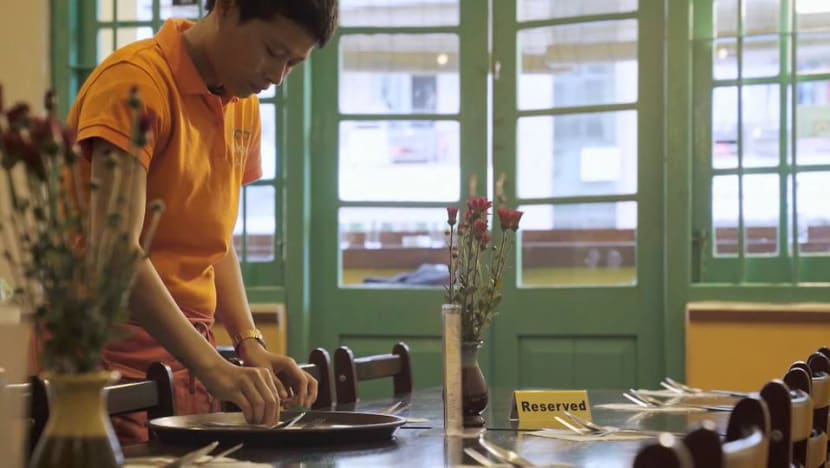
Managing these street children comes with its set of challenges. Forced or bullied into labour, some of them need to be counselled and comforted first.
Despite the occasional heartache – including that of children leaving suddenly – she recognises that the children’s behaviours are a result of their circumstances.
“We have to get those emotions out first … Only when they’re empty (of the negative feelings), then we start to teach them knowledge and how to be compassionate,” explained Ma Khin.
“For me, I’m like a mother to them because they’re deprived of love.”
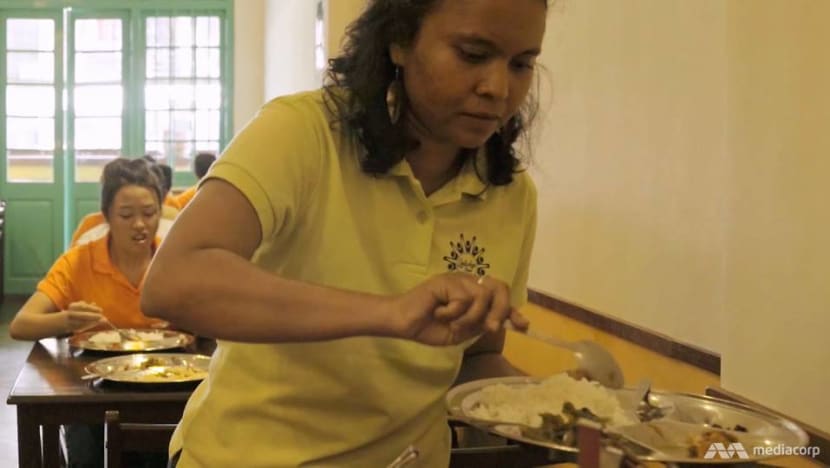
HIGH HOPES FOR THEM
Getting used to the routine at LinkAge, and that of a chef-in-training, is not easy for children used to the free-for-all of the streets.
Head chef and trainer Ye Htut, who is known as Ko Ye (Brother Ye), wakes them early to get the restaurant ready for business.
“I was relatively harsh with them and was repeatedly told by Ma Khin not to scold them in a certain manner. I had to curb my own anger,” admitted the 43-year-old.
“It was definitely difficult at first. Adopting such an attitude requires some effort."
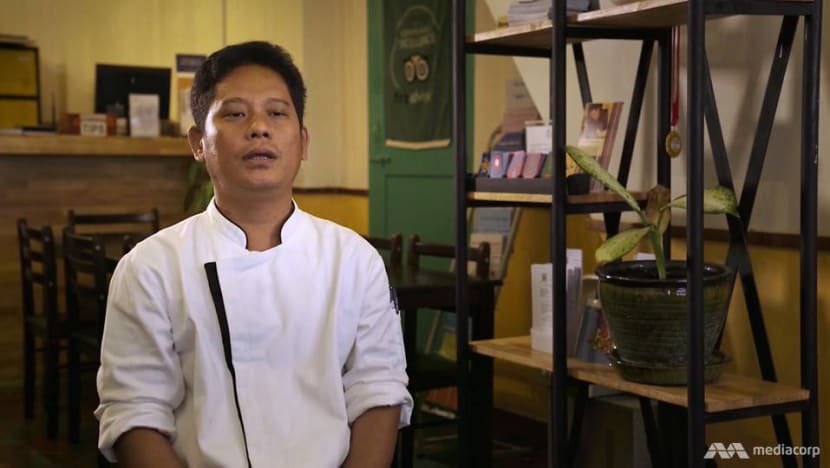
Myat Thu Aung, one of the older children at LinkAge, was initially intimidated by him because of his “stern face” and strict ways.
“But eventually, we realised he was sacrificing being liked, in order for us to be disciplined. We started to take it in our stride, realising that such goodwill was hard to come by,” said the youth.
Ma Khin and the restaurant, which serves up local dishes, have enjoyed some measure of success, thanks in part to publicity in the local newspapers and even some guide books.
“The restaurant gained more tourist traffic,” she said. “We use this cash flow to educate the children.”
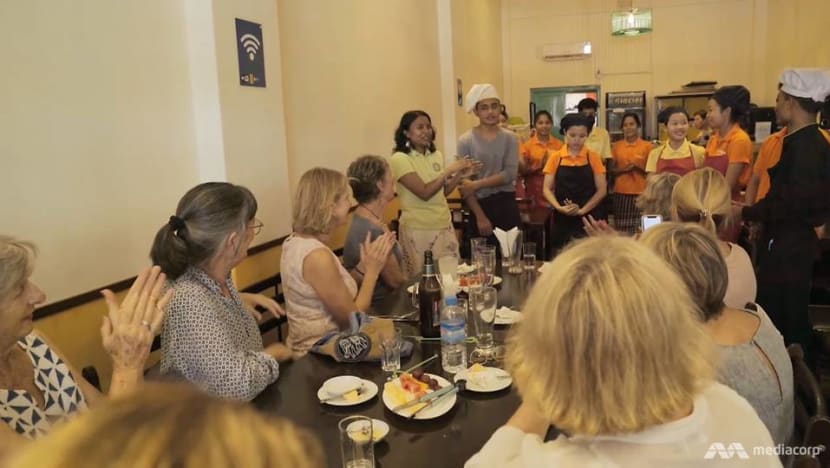
Working with street children has been both fulfilling and frustrating for her, but she remains their biggest fan and has high hopes for them.
She took in five children when she first started, training them to cook and serve. The following year, four of these “graduates” found jobs in other restaurants, and the fifth continued to study at a state-run school.
“Street kids are better than us. We succeeded only under the protection provided by our parents. They manage to survive on the streets because they’re able to solve all their problems on their own,” she said.
“We can’t look down on them. We need to respect them. They don’t need sympathy. They only need a little support to achieve big things.”
Watch this episode here, and also read about the psychologist trying to get more help for Hong Kong's suicidal, depressed youth. Catch the series Champions for Change on Wednesdays at 9pm, and view the details of the other profiles here.
















